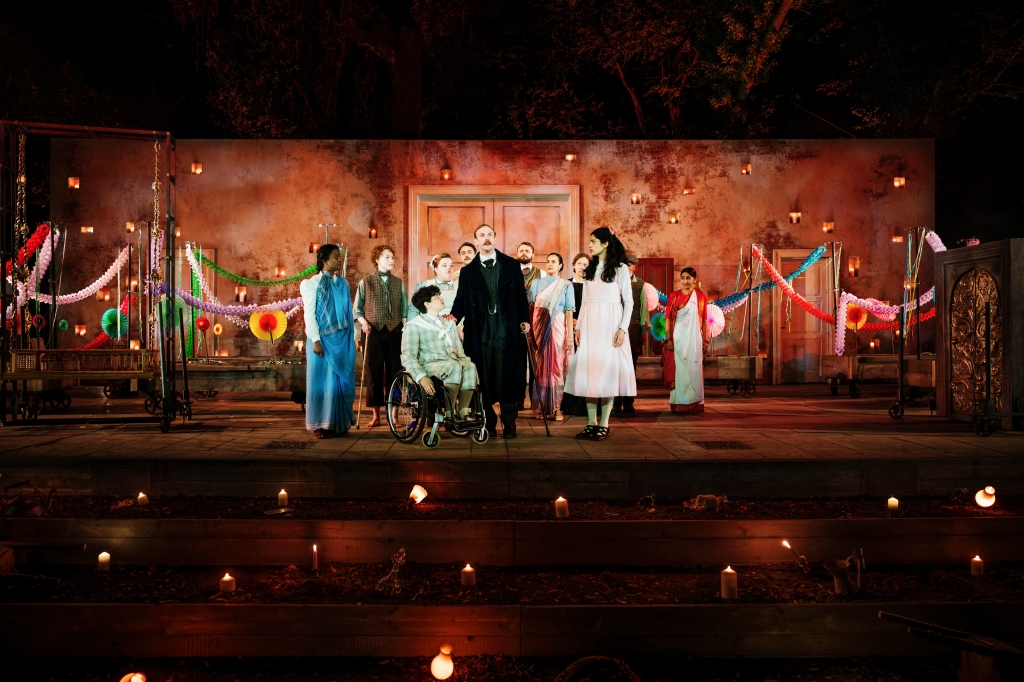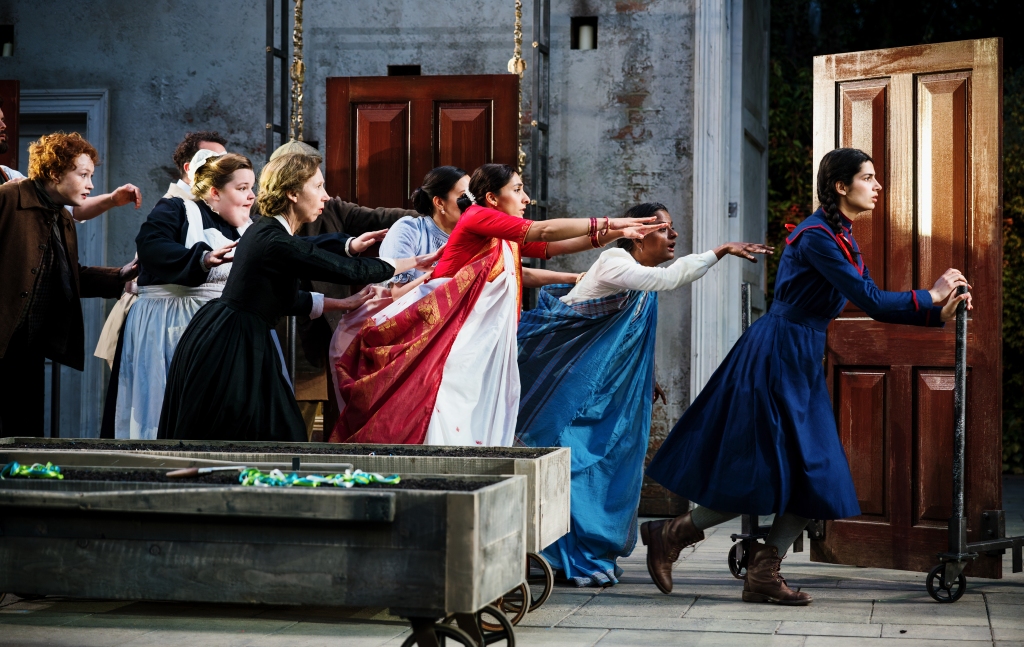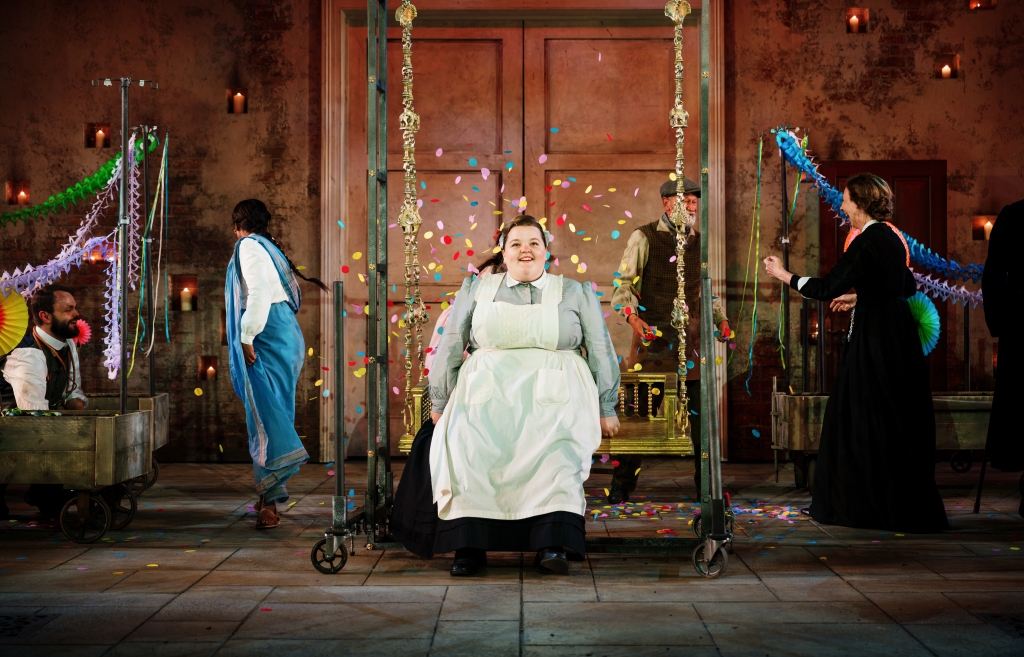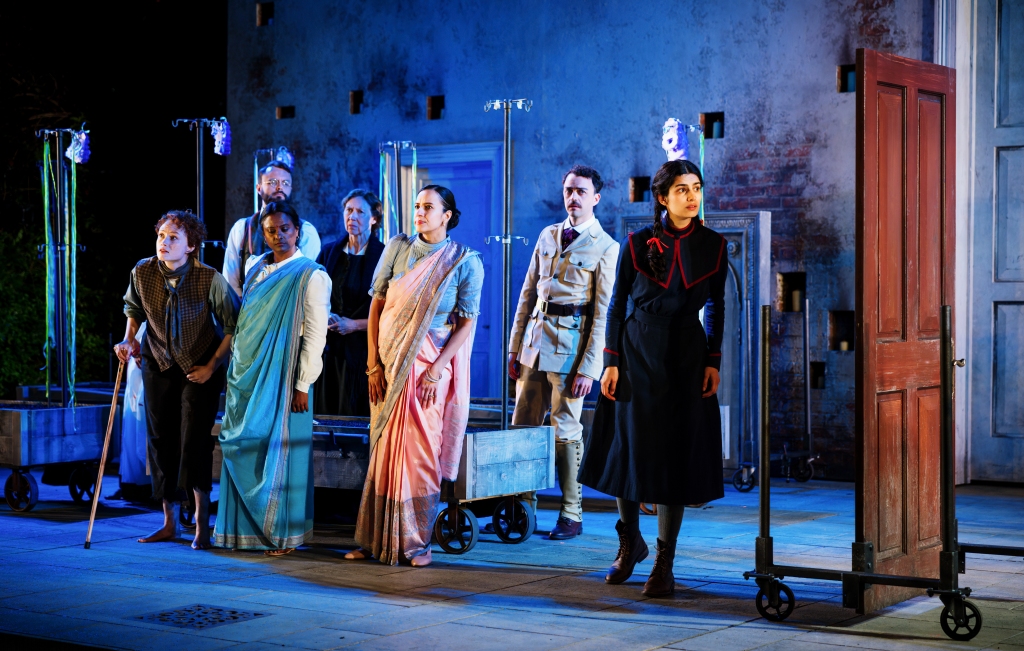Frances Hodgson Burnett’s turn-of-the-century classic returns to the stage in a new adaptation playing at Regent’s Open Air Theatre until mid-summer. Guillermo Nazara shares his views on the show, to let us know if this blooming version of a literary icon ends up coming up roses.
“If someone wanted me to die, I would keep living just to spite them.” Toxic but empowering – just like me. And as the searing sun comes through my window to remind me of this unbearable heat wave (and don’t say I should already be used to it because of my origins – I guarantee hell is way cooler…), let’s unearth my budding bile and let it flourish, as we sew the seeds of criticism in today’s review about the new London production of The Secret Garden. Nahhh, I’ll be nice (within my capacity…), I just needed to sprout a few puns before resuming the groundwork. Alright, I’ll stop – I guess there’s no need to shove-l them down your throat…
This story doesn’t begin in Yorkshire. It begins in India… Poetic prose floats through the static air of Regent’s Open Air Theatre, as Frances Hodgson Burnett’s consummate classic starts to unravel before our eyes – filled with anticipation as for the marvels that, just Mary and friends do, we are bound to be immersed in. A white peeling wall transitions from curtain to backdrop as Mary’s journey to England takes off. And as a few props discreetly complement the setting throughout her first incursions into the manor, our minds whirl in expectation for the big moment to arrive. What will that garden look like? How will they choose to stage it? We’re in a park, after all, so the possibilities are infinite!

Sadly, though, such awe doesn’t ever strike. Designed by Leslie Travers, the show is capable of scraping some beauty through its visuals, but the wondrous appeal we’re supposed to be taken by never really happens. The problem stems (there’s another one for you) from a mixture of not too imaginative solutions combined with too great a lack of versatility and dynamism. Though, quite paradoxically, conceived for precisely those effects, the trick is nonetheless unaccomplished by an almost constant struggle to evoke any atmospheres with sufficient proficiency – giving us an aftertaste of unfulfillment upon considering all the things that could have been done, but for some reason never were.
We don’t know all the facts, and chances are that the venue may come with some restrictions preventing what the creatives had intended in the first place. But regardless of how much we try to play devil’s advocate here, all paths lead to the same conclusion: we needed more. In a time where so many shows have regaled us with truly jaw-dropping moments, without needing too much complexity apart from their own originality (Life of Pi possibly being the closest reference), it’s hard to find any plausible arguments to justify that missing wow factor that the characters are allegedly captivated by – but we, as audiences, never get invited to.

Directed by Anna Himali Howard, through a new adaptation penned along with Holly Robinson, the recount preserves the charm and enticement of the book. But perhaps in tandem with its scenography, or perhaps the reason for its issues, the constant omniscient narration (shared by every member of the company as some sort of Greek chorus) prevents the recount from fully germinating – holding its pacing too much and dissipating, almost completely, the intimacy that some scenes so desperately require. There’s nothing wrong with employing such types of framing devices, in principle; but just like with any other tools, when you exhaust them or simply use them for the sake of using them, they end up achieving the opposite to what you were aiming for.
In spite of all of this, we can say, anyhow, that the performance is, in all fairness, rather enjoyable – parting from a classic story that continues to bewilder its viewers still nowadays, and finishing with a genuinely superb cast that play their parts with impeccable ease. Among them, the stand-outs are given out by Patrick Osborne as Captain Lennox and George Fletcher as Dr Craven, both exuding exceptional presence and strength in their portrayals. On the other hand, Hannah Khalique-Brown in the lead role of Mary Lennox and Molly Hewitt-Richards as the servant Martha make another memorable appearance, projecting great rapport towards each other while also granting character and stature to their personages. Yet, the biggest praise goes, in this case, to Jack Humphrey as Archibald Craven, crafting quite a moving depiction that flaunts the distance nature of a haunted man, while endowing him with the necessary humanity that not only makes him sympathetic, but truthful too.

Resting on a virgin land of countless options, The Secret Garden spades up the soil and sets up the roots to a fruitful experience, but hasn’t matured some of its elements long enough to take whole advantage of their potential. A bit of pollarding in its writing, added to the removal of some weeds, will allow the piece to finally grow into full vigour, and let the enchanting sage the source material is concocted after finally stream down all its lanes. It’s been capable of reaping some mildly satisfying goods. But it’s still far from becoming the prize-winning harvest of the year.
All pictures credit to Alex Bremmer.
The Secret Garden plays at Regent’s Park Open Air Theatre until 20 July. Tickets are available on the following link.

